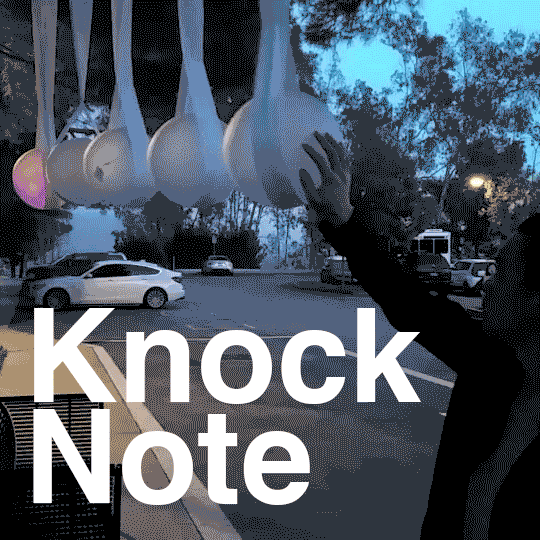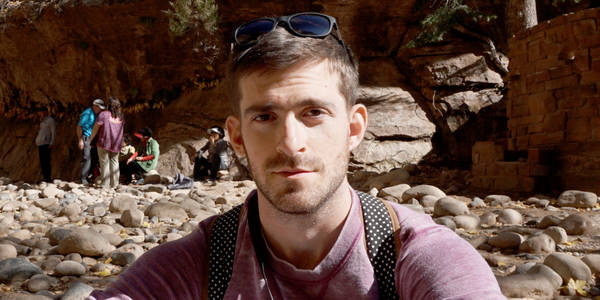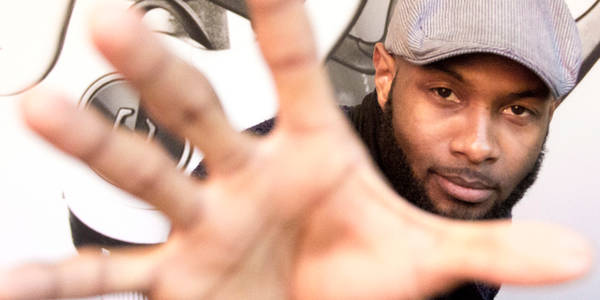profile / alumni / interaction-design
June 04, 2018
BY JAMIE WETHERBE
Wild Thoughts: Meet Interaction Designer Karl Walker
ArtCenter: What’s the most unique thing you’ve designed?
Karl Walker (BS 15 Interaction Design) Product Designer Tradesy: My senior project at ArtCenter, which was a solution for people who are dealing with Alzheimer’s and the entire support system around them. It’s a project I’m still very interested in continuing, and I make small strides here and there. My grandma had the disease — she had a fiery personality. It never went away, but you saw it less and less.
When kids are being creative, they’ll make a version of something. And if they don’t like it, they’ll scrap it, start over and try again. I want that superpower.
Karl Walker
AC: How do you define success?
KW: It’s always dependent on what you’re looking at. The Alzheimer’s project at ArtCenter introduced this idea of defining success. When you start a project, you come up with success metrics by outlining the problem and defining what it means to solve it. I take that forward with me.
AC: What’s the design cliché you’re most tempted to use?
KW: To make things skeuomorphic.
AC: What’s the one tool you can’t do without?
KW: Command Z.
AC: What’s the first site you look at when you open your computer in the morning?
KW: I desperately want to say it’s some design inspiration, but it’s Facebook.
AC: What do you do to detox from media and screens?
KW: Take my dog for a walk.
AC: Where do you go (online or offline) when you’re taking a break?
KW: I started in ArtCenter’s Transportation Design program, so I like to go on Craigslist and daydream about cars.
AC: If you could trade jobs with anyone for a day who would it be?
KW: A car designer. A path not followed, is a curiosity.
AC: What book is on your bedside table?
KW: Discussing Design, our design team at work is reading it — it’s really good break down of what it means to set up a critique.
AC: Describe a moment in your childhood where you first identified as a designer.
KW: I’m the youngest and my relatives would always ask my siblings what they wanted to do. So I wanted to solve this problem for myself. Being a 12-year-old kid, I was good at art but I also loved cars, so if I put those together, what happens? That’s when I decided I wanted to be a designer.
AC: If you could have a superpower, what would it be?
KW: To care less when it comes to creativity. When kids are being creative, they’ll make a version of something. And if they don’t like it, they’ll scrap it, start over and try again. I want that superpower.
Alumni Q&A
Submit the Alumni Q&A questionnaire to share your story. We want to hear about your accomplishments, what you're working on and your advice for future ArtCenter students.
AC: What’s your most irrational or rational fear?
KW: Before sharing my work I get these wild thoughts…
AC: Where is your happy place?
KW: That purely creative state is always a happy spot to be in. Or Tahoe.
AC: What’s your most prized possession?
KW: For my birthday, my wife got me this really cool second-hand Nixon watch on eBay. It’s electric blue with all these scuffs and atrocious at telling time. I’m always really happy to wear it.
AC: What’s your best piece of advice for an ArtCenter student who’s interested in following your career path?
KW: Looking back, I wish I had been better about structuring my time. You can’t always tackle everything you want. Your imagination will always outstep your capabilities. Everything’s achievable, but not everything can be done in the time you have to do it. You have to decide what part of your vision fits within your timeframe.






